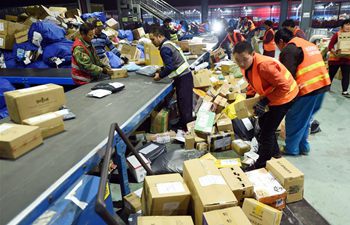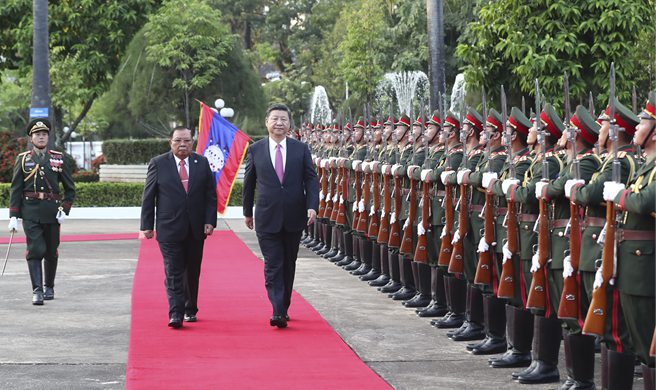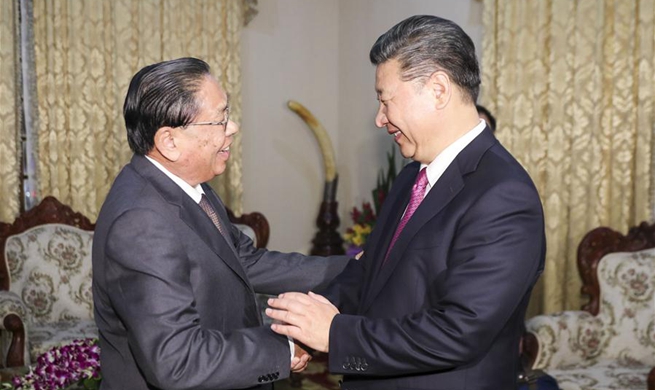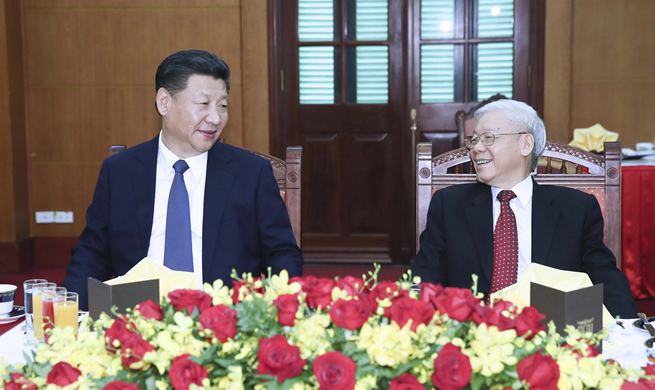MANILA, Nov. 14 (Xinhua) -- China's role will be important in regional economic cooperation and integration, head of a multilateral group said in an interview with Xinhua on Tuesday.
As an attendee of the 20th ASEAN Plus Three (APT) summit held in Manila early in the day, Lee Jong-heon, secretary-general of the Trilateral Cooperation Secretariat (TCS), said that he is impressed by China's initiatives to advance the construction of an East Asia Economic Community.
China's initiatives are very important and helpful in deepening and broadening the cooperation in the East Asian region as well as pushing forward the establishment of the East Asia Economic Community, he said.
The TCS secretary-general predicted the ASEAN Plus Three will become one of the most successful and institutionalized regional cooperation mechanisms.
"China will turn out to be very, very successful to prevent another financial crisis in the region and boost regional cooperation and integration," said Lee.
After the financial crisis struck Asia in 1990s, many of regional countries, including South Korea, suffered from tight austerity measures demanded by the International Monetary Fund (IMF), according to the TCS chief.
During the crisis, the 10 members of the Association of Southeast Asian Nations (ASEAN) and their three dialogue partners, namely China, Japan and South Korea, found a way to contribute to stabilizing economic situations in the region, Lee said, referring to the Chiang Mai Initiative (CMI) and the Asian bond market.
The CMI is a multilateral currency swap agreement among the ASEAN members and the three East Asian nations that serves as a financial safety system in the region.
"China is very enthusiastic in implementing new financial cooperation mechanism. The Chiang Mai Initiative is one of them... Without this kind of financial safety net, we are always worried about another possible crisis," said the TCS chief.
Lee said the trilateral cooperation among China, Japan and South Korea will be important for the broader regional cooperation and eventually globalization.
He said that though globalization and regional cooperation are facing challenges in the wake of Brexit and rising protectionism, most countries in the world fully recognize the importance of globalization and regional cooperation.
"It is very imperative for these three countries (China, Japan and South Korea) to make joint and concerted efforts to keep the momentum for this open, regional cooperation."
Lee said the cooperation will be inevitable among China, Japan and South Korea given the geographical proximity, cultural similarity and necessity to cooperate with each other in non-traditional security areas.
"Cooperation among China, Japan and South Korea is interconnected with regional cooperation formats such as ASEAN, APEC (Asia-Pacific Economic Cooperation) and other cooperation mechanisms."
The TCS is an international organization launched in 2011 and headquartered in Seoul with an aim to promote peace and common prosperity among China, Japan and South Korea.
Lee forecast the Regional Comprehensive Economic Partnership (RCEP) and the Free Trade Area of the Asia-Pacific (FTAAP) will be put under the spotlight.
The RCEP is a regional free trade agreement (FTA) pursued by the 10 ASEAN members and six regional partners, namely China, Japan, South Korea, Australia, New Zealand and India.
Once the trilateral FTA and the RCEP are concluded, Lee said, the region will inevitably need to widen its coverage of regional cooperation.
"After that, we can think about the conclusion and negotiations of FTAAP. FTAAP is the only one proposal which involves China and the United States at the very comprehensive level," he added.

















